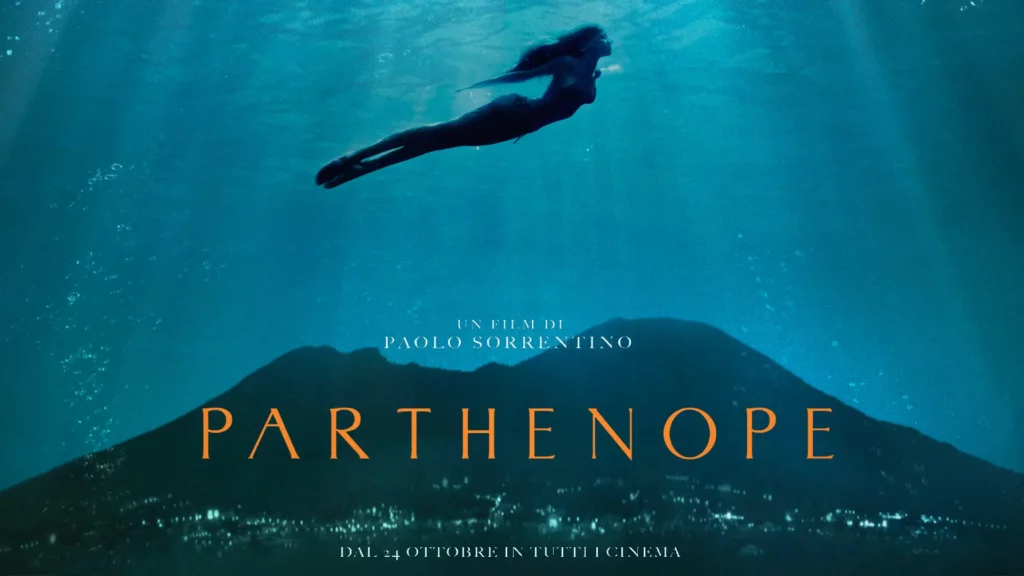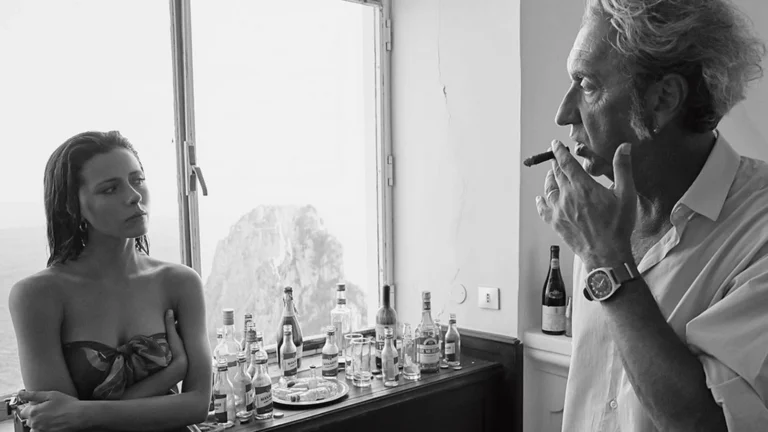by Adriano Izzo, Civil Lawyer and President of the Gennaro Santilli Foundation ETS,
Sorrentino’s new film, Parthenope, offers us yet another opportunity to delve deeper into the poetic vision of the Neapolitan director.
“Professor, what is anthropology?” asks Parthenope, the protagonist portrayed brilliantly by Celeste Della Porta, to the only man capable of truly capturing her attention and sparking her curiosity.
“Anthropology is seeing,” replies an extraordinary Silvio Orlando, playing university professor Devoto Marotta, after a moment of hesitation. Marotta is an iconic character, resistant to smiling and a healthy bearer of knowledge on the verge of extinction.
In this single phrase lies the essence of Sorrentino’s cinema—a cinema that is, above all, about characters. It is about faces that fill the frame, captured by a directorial style attuned to the portrait and its narrative power. Faces that stand out in the beauty of their imperfection.
Behind the caustic professor’s answer lies the key to decoding Sorrentino’s message: the director offers us his vision of the world, inviting us to observe the reality of the human condition in its extraordinary beauty and, simultaneously, in its misery.
“I will never judge you, and you will never judge me,” is the pact Prof. Marotta proposes to Parthenope. And she accepts it.

Because this is the challenge Sorrentino presents to us: to explore the infinite facets of human existence without passing judgment. The suspension of judgment is the key to truly understanding reality, setting aside the emotions that cloud, direct, and condition our perception.
Seeing. It is a complex exercise, forming the essence of cultural anthropology, and one we are not accustomed to practicing.
This is the great merit of Sorrentino’s cinematography: a gaze upon humanity free from ideologies and judgments. Because it is only in this way, and only in this way, that we can understand and accept others.
One unforgettable scene exemplifying this is from The Great Beauty, the 2014 Oscar-winning film. In it, the protagonist Jep Gambardella, played by Toni Servillo, ends a powerful monologue dismantling the façade of lies upheld by his friend Stefania, a representative of self-referential and hypocritical humanity:
“Stefà, mother and woman, you’re 53 years old and have a life as wrecked as the rest of us. So instead of lecturing us, looking at us with disdain, you should look at us with affection. We’re all on the edge of despair. The only remedy is to look each other in the face, keep each other company, poke a little fun at ourselves, don’t you think?”
Through Jep Gambardella’s words, Sorrentino encourages us to reflect on a reflection that should lead to understanding and action: we are all the same, with our beauty and our vulnerabilities. We are different, yet the same.
Learning to see the world helps us see ourselves, understand ourselves, and, in turn, understand others.



